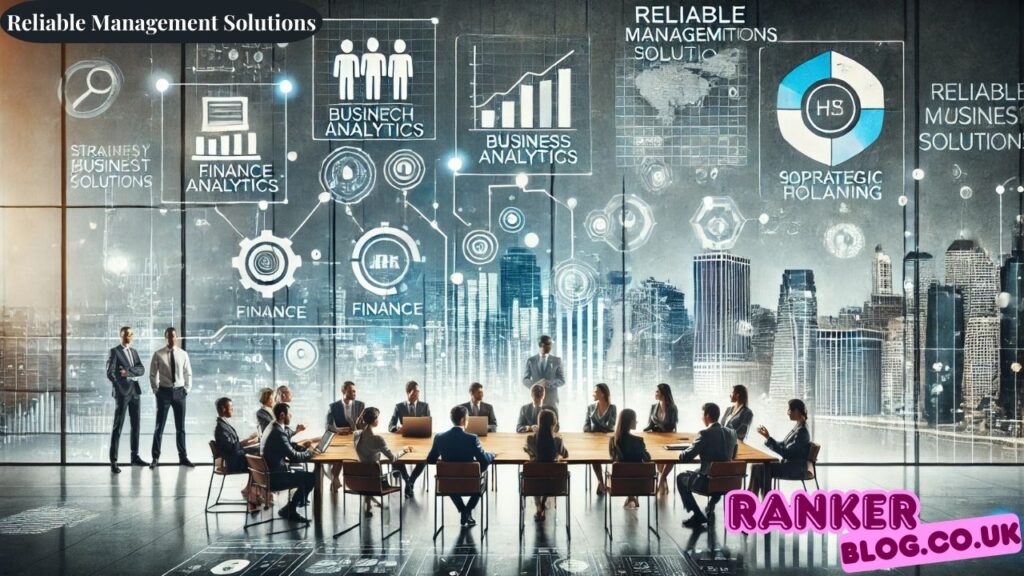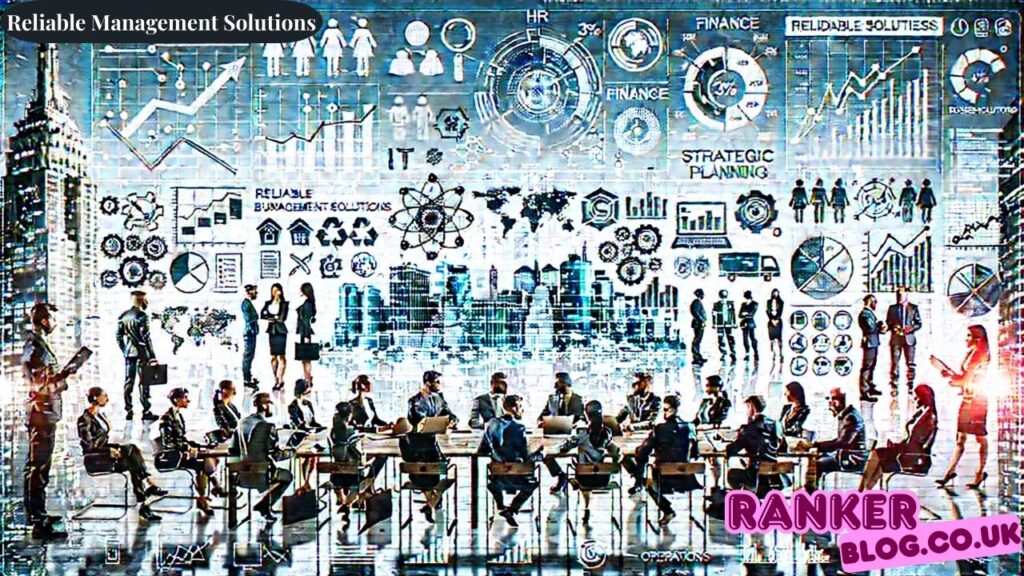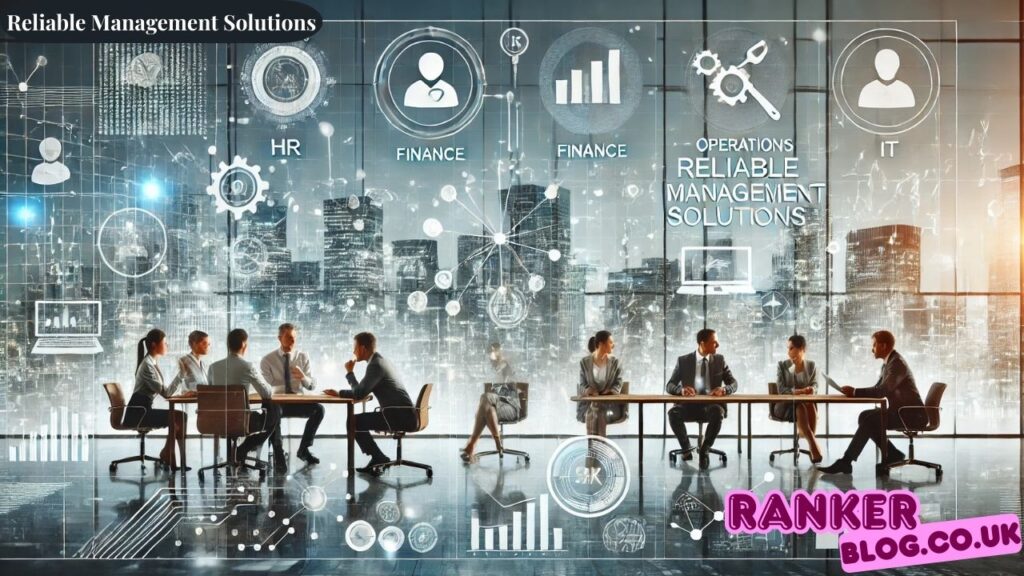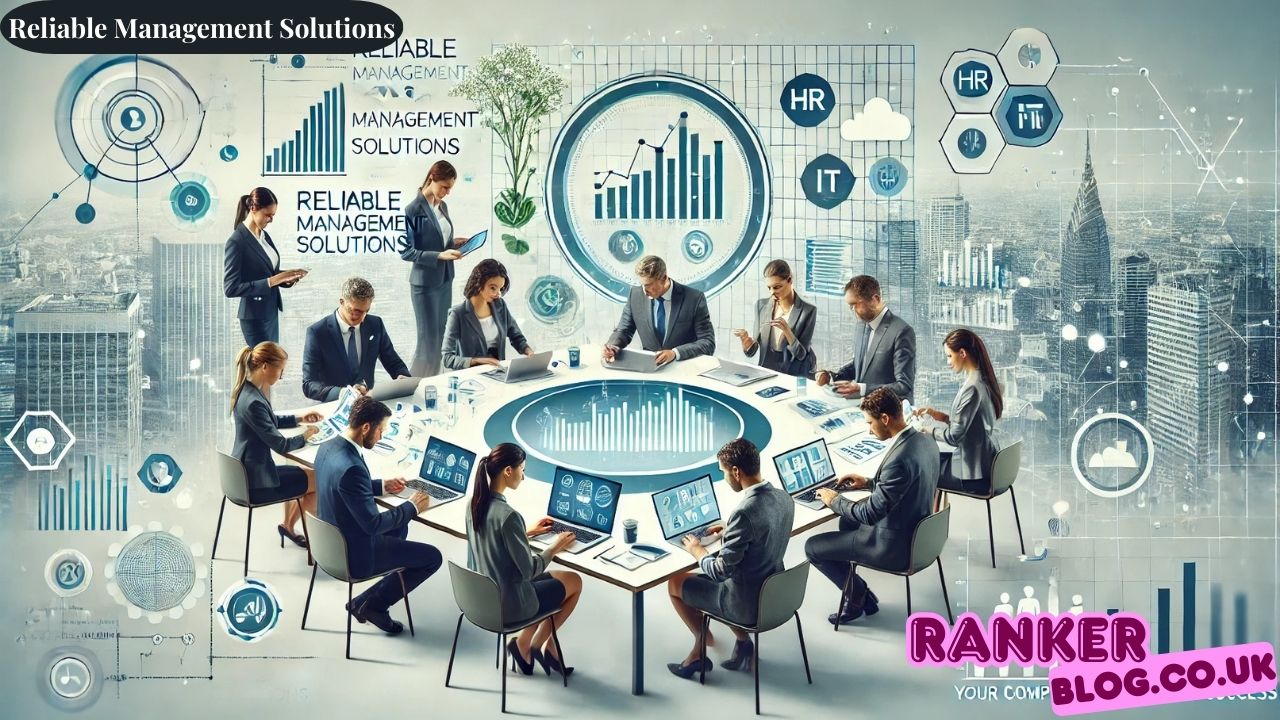Introduction to Reliable Management Solutions
In today’s rapidly evolving business landscape, organizations face unprecedented challenges that demand systematic approaches to operational excellence. Reliable management solutions represent the cornerstone of sustainable business growth, providing companies with structured frameworks to navigate complexity while maintaining consistent performance standards.
These comprehensive systems encompass strategic planning, operational efficiency, and resource optimization, creating value across all business functions. The modern marketplace requires organizations to implement reliable management solutions that can adapt to changing conditions while delivering predictable outcomes.
The critical need for reliability in modern business operations stems from increasing customer expectations, regulatory requirements, and competitive pressures. Companies that invest in robust management frameworks position themselves for long-term success by establishing foundations that support scalable growth and operational resilience.
Key Characteristics of Reliable Management Solutions

Consistency and Predictable Performance
Effective management systems prioritize consistency across all organizational levels. This involves establishing standardized processes, clear communication channels, and performance metrics that enable teams to deliver predictable results regardless of external fluctuations.
Scalability and Adaptability
Modern businesses require management frameworks that can evolve to meet changing organizational needs. Reliable management solutions incorporate flexible architectures that accommodate expansion while maintaining core operational standards and quality benchmarks.
Risk Mitigation and Contingency Planning
Comprehensive management systems include robust risk assessment protocols and contingency planning mechanisms. These elements ensure business continuity in the event of unexpected disruptions, while protecting organizational assets and stakeholder interests.
Data-Driven Decision-Making Capabilities
Contemporary management approaches leverage analytics and business intelligence to inform strategic decisions. This data-centric methodology enables organizations to identify trends, optimize resource allocation, and measure performance against established objectives.
Integration and Interoperability Features
Successful management systems seamlessly integrate with existing business infrastructure while supporting communication between different departments and external partners. This connectivity enhances operational efficiency and reduces information silos.
Types of Reliable Management Solutions

Human Resource Management
Talent Acquisition and Retention Strategies Organizations implement comprehensive talent management programs that attract qualified candidates while fostering employee engagement and career development opportunities.
Performance Management Systems Structured performance evaluation frameworks provide clear expectations, regular feedback, and professional development pathways that align individual contributions with organizational objectives.
Employee Development and Training Programs: Investing in workforce development ensures that teams possess the necessary skills while building organizational capacity for future challenges and opportunities.
Workforce Planning and Analytics. Strategic human resource planning utilizes demographic analysis, skills assessment, and succession planning to maintain optimal staffing levels across all business functions.
Financial Management
Comprehensive financial planning processes establish spending guidelines, revenue projections, and resource allocation strategies that support sustainable growth objectives.
Effective cash flow management ensures operational continuity while optimizing working capital utilization and investment opportunities.
Financial Reporting and Compliance: Accurate financial reporting systems maintain regulatory compliance while providing stakeholders with transparent performance information and accountability measures.
Systematic cost analysis identifies efficiency opportunities while maintaining service quality and operational effectiveness across all organizational functions.
Operations Management
Supply Chain Optimization Integrated supply chain management reduces costs, improves delivery performance, and enhances customer satisfaction through strategic vendor relationships and logistics coordination.
Quality Control Systems Comprehensive quality assurance programs maintain product and service standards while implementing continuous improvement methodologies that drive operational excellence.
Process Improvement Methodologies Systematic process analysis identifies bottlenecks, eliminates waste, and enhances productivity through structured improvement initiatives and employee engagement programs.
Inventory Management Solutions Optimized inventory control balances customer service requirements with carrying costs while minimizing stockouts and excess inventory situations.
Technology Management
IT Infrastructure Reliability Robust technology platforms support business operations through redundant systems, regular maintenance schedules, and capacity planning that accommodates growth requirements.
Comprehensive cybersecurity frameworks protect organizational assets while maintaining customer trust and ensuring regulatory compliance through proactive threat management and incident response capabilities.
Reliable data protection strategies ensure business continuity through regular backups, disaster recovery planning, and system redundancy measures.
Software Lifecycle Management Strategic technology planning includes software evaluation, implementation, and ongoing maintenance that supports business objectives while managing costs and security risks.
Implementation Strategies

Assessment and Needs Analysis
Successful implementation begins with a thorough organizational assessment that identifies current capabilities, gaps, and opportunities for improvement. This analysis provides the foundation for developing targeted improvement strategies.
Stakeholder Engagement and Buy-in
Effective change management requires active participation from leadership and team members across all organizational levels. Effective communication strategies and opportunities for involvement foster support for new initiatives.
Phased Rollout Approaches
Gradual implementation reduces risks while allowing organizations to learn from early experiences and adjust strategies before full-scale deployment.
Change Management Best Practices
Structured change management processes address resistance, provide training support, and establish feedback mechanisms that facilitate smooth transitions.
Training and Support Systems
Comprehensive training programs ensure that team members possess the necessary skills, while ongoing support resources address questions and challenges during the implementation phases.
Benefits and ROI of Reliable Management Solutions
Improved Operational Efficiency
Systematic management approaches streamline processes, reduce waste, and optimize resource utilization while maintaining high-quality standards and consistently meeting customer satisfaction levels.
Enhanced Decision-Making Capabilities
Data-driven management systems provide accurate information and analytical tools that support strategic planning and tactical decision-making across organizational functions.
Risk Reduction and Compliance Assurance
Comprehensive management frameworks identify potential risks, establish controls, and implement monitoring systems to ensure regulatory compliance and protect stakeholders.
Cost Savings and Revenue Optimization
Efficient management practices reduce operational costs while identifying opportunities for revenue enhancement through improved customer service and market positioning.
Competitive Advantage Creation
Organizations with effective management systems respond more quickly to market changes while delivering superior customer value and operational performance.
Challenges and Solutions
Common Implementation Obstacles
Organizations frequently encounter resistance to change, resource constraints, and technical complexities during the implementation of management systems. These challenges require careful planning and stakeholder engagement.
Resource Allocation Concerns
Successful implementation requires adequate financial resources, personnel time, and management attention. Organizations must strike a balance between immediate needs and long-term improvement objectives.
Resistance to Change Management
Employee concerns about new processes and technologies require proactive communication, training support, and opportunities for involvement that address specific problems and build confidence.
Technology Integration Complexities
Technical challenges related to system compatibility, data migration, and user training require careful planning and expert support throughout implementation phases.
Strategies for Overcoming Barriers
Successful organizations address implementation challenges through comprehensive planning, stakeholder engagement, phased rollouts, and ongoing support systems that facilitate smooth transitions.
Future Trends and Innovations
Artificial Intelligence and Automation Integration
Advanced technologies enhance management capabilities through predictive analytics, automated workflows, and intelligent decision-support systems, improving efficiency and accuracy.
Cloud-Based Solution Adoption
Cloud computing platforms offer scalable and cost-effective alternatives to traditional infrastructure, supporting remote work and collaboration requirements.
Predictive Analytics Capabilities
Advanced analytical tools enable organizations to anticipate trends, identify opportunities, and optimize resource allocation through data-driven insights and forecasting models.
Sustainability and ESG Considerations
Environmental, social, and governance (ESG) factors are increasingly influencing management decisions as organizations balance profitability with stakeholder expectations and regulatory requirements.
Remote and Hybrid Work Adaptations
Management systems adapt to support distributed workforces through digital collaboration tools, performance monitoring capabilities, and flexible work arrangements, enabling seamless collaboration and effective management.
Conclusion
Reliable management solutions provide the foundation for sustainable business success in an increasingly complex marketplace. Organizations that invest in comprehensive management frameworks position themselves for long-term growth while building competitive advantages through operational excellence.
The key to success lies in selecting management approaches that align with organizational objectives, while also addressing specific industry requirements and stakeholder expectations. Implementation requires careful planning, stakeholder engagement, and ongoing commitment to continuous improvement.
As businesses continue to evolve, management systems must adapt to incorporate new technologies, changing workforce expectations, and emerging market opportunities. Organizations that embrace innovation while maintaining proven management principles will thrive in the dynamic business environment of the future.
Also Read: TimeWarp TaskUs The Ultimate Workforce Management Solution for Modern BPO Operations

